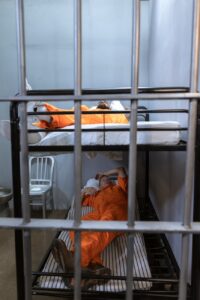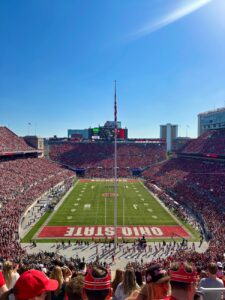Health care coverage & operational maintenance sought by CEU
This archived article was written by: Gypsie Delgado
Vice President of Institutional Advancement, Brad King, will be representing CEU at the state legislature this year where he will be requesting compensation for the faculty and staff, health care coverage benefits, enrollment growth at San Juan Campus and operation maintenance money for a couple of Price campus buildings.
Part of the requested money is to cover the cost of the increased benefits plus a three percent salary increase for the employees. “It doesn’t appear that that is likely. The revenues for the state are only about $28 million over the projection of the current year’s budget. That is only enough money to cover benefits for state employees, higher education and public education. There may be some reallocations in some other areas that would benefit higher and public education but there may not be,” King stated.
The governor’s suggested budget had additional money for increases in both public and higher education, which the legislature sets. “The numbers that are coming in from tax collection do not indicate that there is very much but it does indicate that we probably have enough that there won’t be further cuts this year.
“It’s basically, first of all, to keep from having further cuts. The employees haven’t had an increase from the state for about three years so the faculty and the staff are first priority this next year. We were able to do a little bit last year due to a benefit package increase which wasn’t as big as it was funded for so some of it got to go to salary,” King said.
King also has a couple of bills that he will be carrying to the senate. A bill to help higher education, not particularly CEU students, but all Utah students with out-of-state status for Utah National Guard. A number of students have come here from out-of-state to attend colleges and universities. While in Utah they have joined Utah National Guard then have been called to active duty out of the state. These students do not get credit for the time that they are not in the state towards becoming in-state residents.
“That seems to be a real dumb thing. Here they are fighting for us and representing Utah in the National Guard and they don’t have any consideration for that out-of-state fee that they have to pay. I will attempt to make it so those out-of -state soldiers in the Utah State National Guard can get residency in a little bit different way than they would normally,” expressed King.
The other bill King is taking is one working on the state retirement system. “We actually have two retirement systems. There are 3,000 or 4,000 employees in the state who are still on the old retirement system who would like to move to the new system. The state opened a window to change it and some of the employees didn’t take advantage of it so I am trying to find a way to help them to get on the new system. The current system is a little bit better for the employees. I’ve actually tried it two times before and it has failed both times so I am trying a different approach this year,” King said.
King’s primary concern is the budget. He has been the author of the Democratic Alternative for the last three or four years. “A lot of my time is spent looking for resources in the various nooks and crannies of the state budget and seeing if we can’t do something a little more for the state especially in public and higher education.
“Mostly what I do is try and keep things that I think are bad for Utah from happening.
“If there is a new building on campus it will be independent from the legislative action,” King said.
All planning for new buildings is going to be done in a couple of months in conjunction with a master plan. The Division of Facilities will take into account the open spaces on campus. The next building that is in request for the Price Campus is a fine arts building. “There has been a lot of talk about a joint use library facility that would be shared between the county, the city, the school district and the college. Because we now have some open spaces to deal with, we will just use that planning to the springboard to decide where everything fits. A few months ago we decided to put a parking lot in place of the old main building but now as we look at it in conjunction with other requests, maybe that is not the best place for it.
“The last three years have been very difficult for CEU because of the economy and some of the other factors we have on campus dealing with budget. We have had cuts for the last three years. In fact I think we cut about $1.2 million out of our budget. We are now on a stable operating budget and we have taken away a lot of things we would like to do.
“We gave up the Moab Campus and that saved quite a bit of money but that cost us those students. A lot of the growth we have suffered in decrease of enrollment can be traced directly to Moab. We are also in the process of moving the mining department from CEU to the College of Applied Technology. That cost us some students also but there were also some significant savings because of which will be realized in the future.
“Right now we are in better financial shape than we have been in three, four or five years because of those cuts. They were painful at the time but it puts us in a place where we can start looking at the future a little better and start looking at the future a little better like new programs which we haven’t even been able to look at because of our budget situation. I think that we are poised at an intersection here and need to make a determination on where we want to be but I think financially we are in a good place to start that,” he said.
CEU’s future goals include starting an endowment to raise additional scholarship money for students and a capitol facilities program to help get the next building on the state building board list.
The college has come through the single biggest fundraising year it has ever had. “We have had people die and remember us in their wills which have and will continue to make significant impacts in the future. The Leavitt family is the big one, which we have named the Jennifer Leavitt Student Center after their granddaughter. Helen Leavitt passed away and left CEU approximately $600,000 in an endowment. We have had a couple of other significant donations that have come in, not that large but pretty good sized, $20,000 and $40,000. So we have been relatively successful raising money this year,” he continued.
The Carbon County Commission has also pledged some mineral release money to CEU that will go toward approximately 40 or 50 student scholarships. “We could like to build an endowment that’s maybe $10-12 million so we could just live off the interest for those scholarships each year.
“If we can raise some private money, the state is more likely to help us out. The endowment and capitol facilities fund is going to be the main focus of this office anyway in the near future,” King added.




